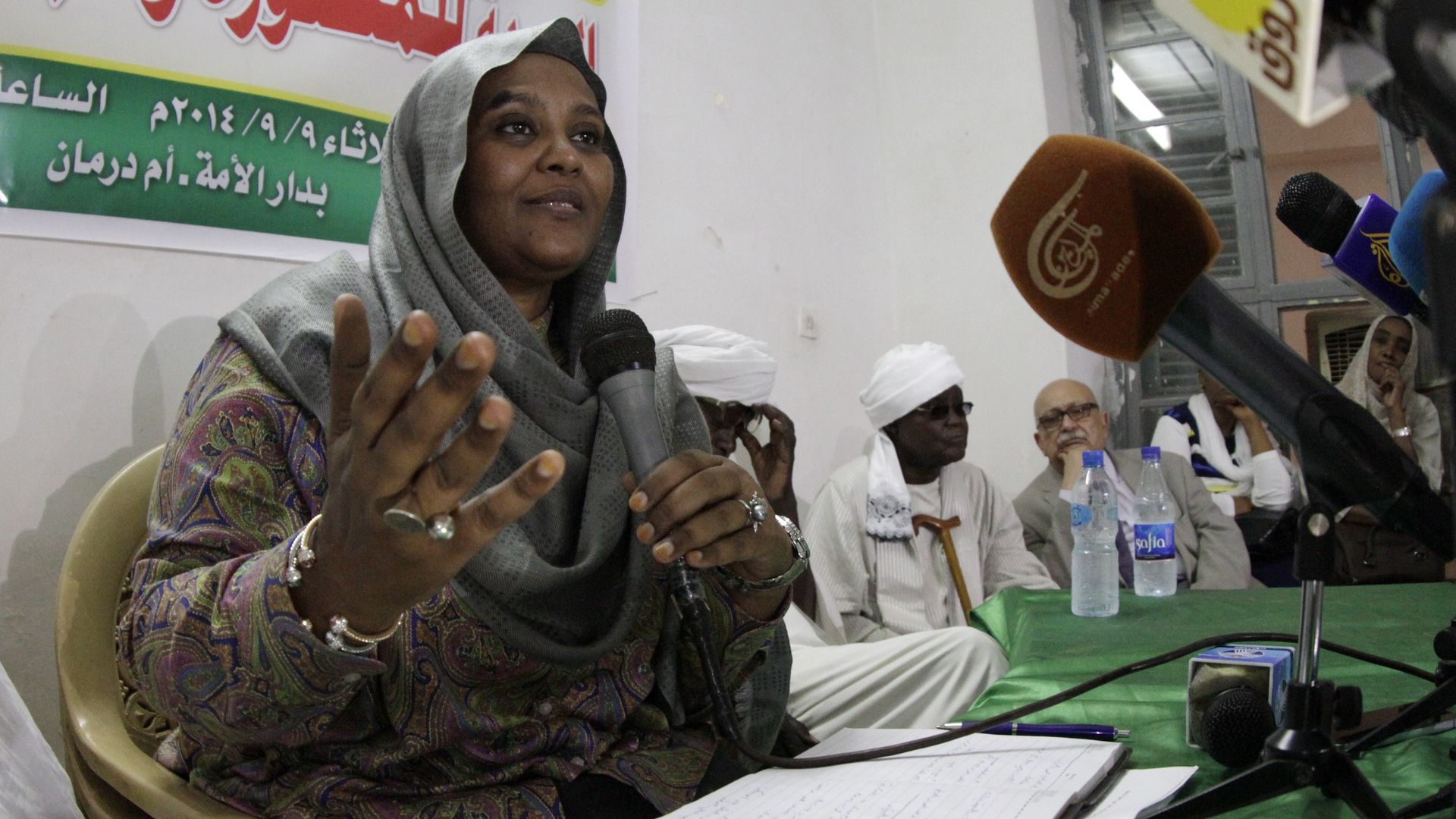Sudan unveils new Cabinet amid economic crisis
Add Axios as your preferred source to
see more of our stories on Google.

Mariam Sadiq al-Mahdi in 2014. Photo: Ashraf Shazly/AFP via Getty
Khartoum — After several months of political wrangling, Sudanese Prime Minister Abdalla Hamdok has unveiled his new Cabinet.
Why it matters: The Sudanese government is facing a deepening economic crisis that is fueling street protests and criticism from political allies.
- Sudan is also in a de facto state of war with Ethiopia on its southeastern border that is showing no signs of abating.
- Then there is the contentious issue of normalization with Israel, which seems to be moving forward gradually.
Driving the news: The much-anticipated Cabinet reshuffle saw former rebel leaders becoming ministers, most notably Finance Minister Gibril Ibrahim, who leads Darfur's Justice and Equality Movement.
Who to watch: The new foreign minister is Mariam Sadiq al-Mahdi, the daughter of former Prime Minister and Umma Party leader Sadiq al-Mahdi, who passed away from COVID-19 in the UAE late last year.
- Her father and the party were fierce opponents of the normalization deal with Israel, and Mariam was quoted last year as assailing the prospect of ties with the Jewish state.
- Ironically, Mariam’s grandfather al-Sideeg al-Mahdi was the first Sudanese politician to open direct channels of communications with the Israelis in the 1950s, seeking their help to kick out the Egyptians and secure Sudan’s independence.
- Her comments led to questions about how she'd handle the Israeli dossier as foreign minister.
Yes, but: Sudanese media reported that Hamdok warned the incoming ministers and their parties that they must either agree to adhere to the government's policies, including with respect to Israel, or steer clear of the Cabinet.
- Later, the Umma Party issued a statement affirming that Mariam will comply with the government's position on normalization.
The big picture: Hamdok has effectively ceded the Israel issue to the military wing of Sudan's governing council, led by Gen. Abdel Fattah al-Burhan.
- A surprise visit from Israeli Intelligence Minister Eli Cohen last month to meet with Burhan was met with silence from the government.
- Hamdok himself made a curious statement during a press conference to introduce the new Cabinet, saying the legislative assembly would have the final say on normalization with Israel.
What to watch: Sudan promised the Trump administration that it would amend laws related to boycotting Israel and sign an agreement to establish diplomatic relations, but it hasn't yet followed through.
- Blinken spoke on the phone with Hamdok last week. Both sides said the call addressed bilateral relations, the political situation in Sudan and economic cooperation — but neither statement mentioned the normalization process with Israel.
